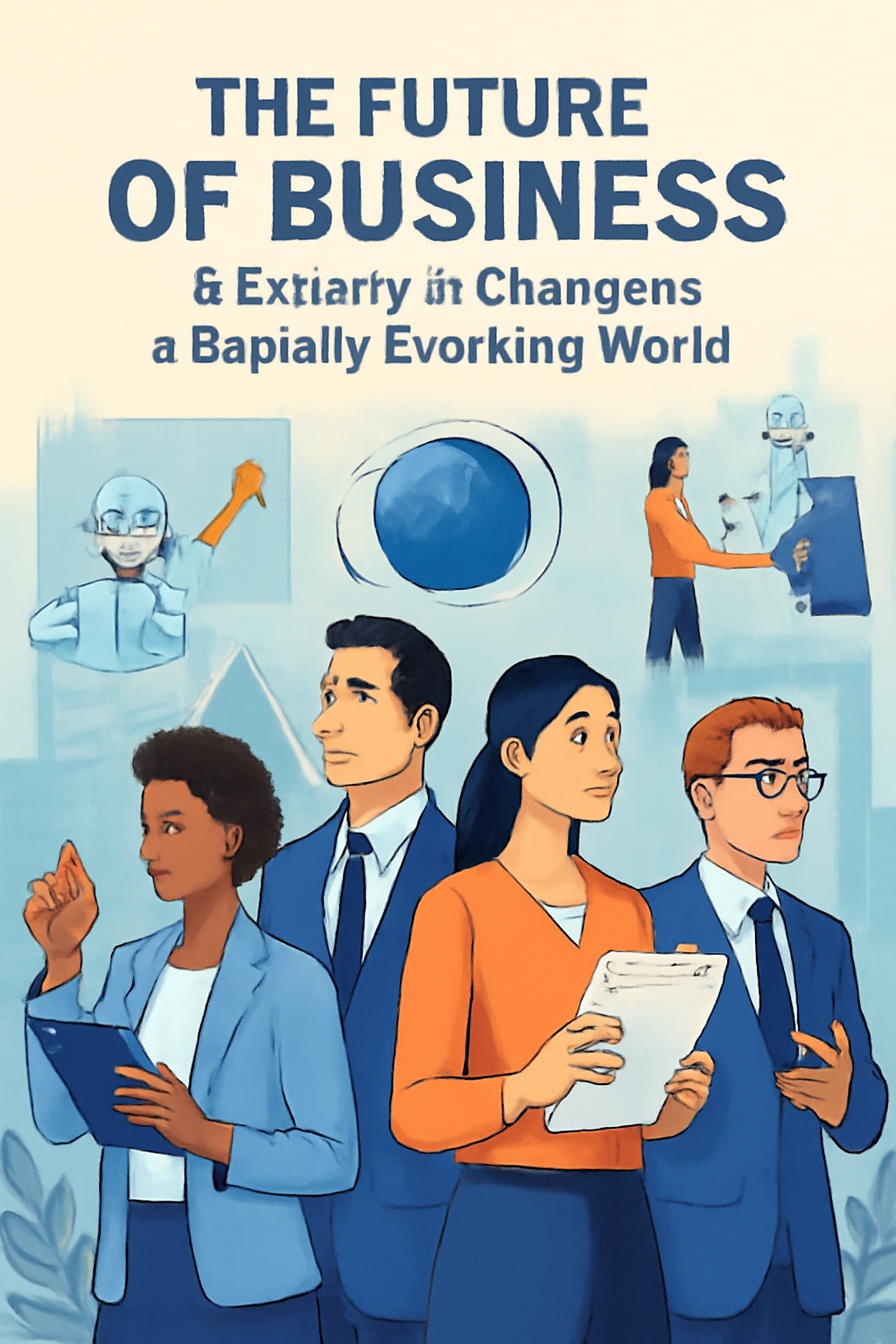In today’s fast-paced world, the business landscape is undergoing significant transformations. Whether you’re running a multinational corporation or a small startup, staying ahead of the curve is vital. New technologies, shifts in consumer behavior, and changing global dynamics all contribute to a constantly evolving environment. As businesses prepare for 2025 and beyond, understanding the future trends and how to adapt is essential for growth and success.
1. The Rise of Remote and Hybrid Work Models
One of the most significant shifts in business operations over the past few years has been the rise of remote and hybrid work models. While initially driven by the global pandemic, remote work has now become an integral part of many companies’ strategies. In fact, research suggests that 74% of professionals expect remote work to become a permanent part of their career.
As businesses adopt hybrid work models, they must address the challenges of maintaining company culture, fostering collaboration, and ensuring productivity. Remote teams need the right tools to stay connected and effective. Cloud-based solutions, project management software, and video conferencing platforms are becoming essential for businesses to thrive in this new reality.
The shift to remote work also encourages companies to rethink their approach to talent acquisition. Businesses are no longer restricted to hiring within geographical limits. They can tap into a global talent pool, finding the best candidates, regardless of location. However, this opens the door to new challenges, such as managing time zones, cultural differences, and employee engagement.
2. Artificial Intelligence and Automation
Artificial Intelligence (AI) and automation are changing the business landscape across industries. AI is no longer a futuristic concept; it’s here, and businesses that fail to adopt AI-driven solutions risk falling behind. Whether it’s AI-powered chatbots providing customer service or machine learning algorithms optimizing supply chains, AI has the potential to significantly reduce costs and improve efficiency.
For businesses, the most notable impact of AI lies in its ability to handle repetitive tasks, freeing up employees for higher-value work. AI also offers predictive insights that can help businesses make data-driven decisions, from forecasting sales to identifying emerging market trends. Furthermore, automation tools are streamlining operations, reducing human error, and increasing overall productivity.
However, businesses need to be mindful of the ethical implications of AI and automation. The integration of AI should be done responsibly, ensuring that employees are upskilled and prepared for the changes. While AI has the power to enhance productivity, businesses must ensure that it does not lead to significant job displacement.
3. Sustainability as a Core Business Strategy
The need for sustainable practices has never been more urgent. Climate change, resource depletion, and environmental degradation are pressing global issues that require immediate attention. As consumers become more aware of the environmental impact of their choices, they are increasingly favoring businesses that prioritize sustainability.
For businesses, adopting sustainable practices is no longer a choice but a necessity. Consumers expect brands to take responsibility for their environmental impact. Whether it’s reducing carbon emissions, using eco-friendly packaging, or sourcing materials ethically, sustainability is becoming a core value that companies must integrate into their operations.
Moreover, sustainability can drive profitability. Green technologies, energy-efficient solutions, and waste reduction practices can help businesses cut costs in the long run. Additionally, consumers are willing to pay a premium for products and services that align with their values. Therefore, businesses that prioritize sustainability are not only contributing to a better world but also positioning themselves as leaders in the market.
4. Data-Driven Decision Making
Data has become one of the most valuable assets for businesses. With the rise of big data, companies now have access to vast amounts of information that can be leveraged to make more informed decisions. In the past, businesses often relied on gut feeling or historical data to guide their strategies. Today, data analytics enables companies to gain real-time insights, spot trends, and identify opportunities that may have otherwise been missed.
Businesses across sectors, from retail to healthcare, are using data to optimize everything from inventory management to customer experiences. AI-powered data analytics tools allow businesses to make faster and more accurate decisions, improve marketing strategies, and enhance customer satisfaction.
However, businesses need to be cautious about how they collect and use data. Data privacy regulations, such as the GDPR in Europe, have made it clear that businesses must handle consumer data responsibly. Ensuring transparency and protecting customers’ privacy should be a top priority for businesses that rely on data.
5. Customer-Centric Approach
In a world where consumer preferences are constantly evolving, businesses must put the customer at the center of their operations. A customer-centric approach goes beyond simply offering quality products or services. It involves understanding the needs and expectations of customers, engaging with them meaningfully, and delivering exceptional experiences at every touchpoint.
Today’s customers are more informed than ever before. They expect personalized experiences and seamless interactions across all platforms, whether it’s through a mobile app, website, or in-person interaction. As a result, businesses are increasingly using customer data and insights to tailor their offerings and create more personalized, targeted marketing campaigns.
To stay competitive, businesses must not only meet but exceed customer expectations. This requires continuous innovation, adaptability, and a deep understanding of the customer journey. Successful businesses will be those that cultivate strong relationships with their customers and continuously strive to improve the customer experience.
6. The Emergence of Blockchain Technology
Blockchain, the technology behind cryptocurrencies like Bitcoin, is gaining traction in various industries. While it’s still commonly associated with digital currencies, blockchain has the potential to revolutionize many sectors, from supply chain management to finance to healthcare.
One of the primary benefits of blockchain is its ability to offer secure, transparent, and decentralized systems. For businesses, this means the ability to create tamper-proof records and transactions. Blockchain can streamline processes, reduce fraud, and increase trust in digital interactions.
For example, in supply chain management, blockchain can provide a transparent and immutable record of every transaction, from raw material sourcing to product delivery. This allows businesses to track products in real-time, reduce inefficiencies, and prevent fraud.
7. The Changing Landscape of Leadership
As businesses evolve, so does the role of leadership. The leaders of tomorrow will need to be more adaptive, agile, and emotionally intelligent. With the rise of remote work, digital transformation, and globalized operations, leadership in the future will require a new set of skills.
Leaders will need to foster collaboration across distributed teams, inspire innovation, and embrace technology to drive growth. Emotional intelligence will be crucial in understanding and managing the diverse needs of a global workforce. Additionally, leaders must champion diversity, equity, and inclusion within their organizations, creating environments where employees feel valued and empowered.
Moreover, the nature of leadership is becoming more decentralized. Empowering employees at all levels to take initiative and contribute to decision-making is a hallmark of the modern business world. Businesses are increasingly shifting towards flat organizational structures, where leadership is shared and decision-making is collaborative.
Conclusion
As we look toward the future of business, it’s clear that change is inevitable. Technological advancements, shifting consumer demands, and new global challenges are reshaping how businesses operate. To succeed in this ever-evolving environment, companies must remain agile, embrace innovation, and prioritize sustainability and customer-centricity.
The businesses that thrive in 2025 and beyond will be those that understand the importance of adapting to change, investing in technology, and fostering a culture of collaboration and inclusivity. By doing so, they will not only survive but also lead the way in shaping the future of business.




